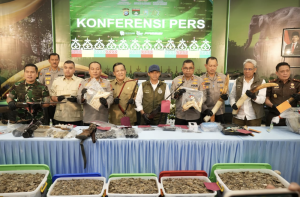Jakarta – Pertamina Patra Niaga (PPN) and private companies have agreed to use an open-book pricing mechanism for the procurement of base fuel. This move is believed to strengthen transparency and certainty of supply for the public.
According to PPN, on Wednesday, September 24, this agreement was born from two meetings between Pertamina and private companies on September 19 and 23, 2025. Pertamina confirmed that the required base fuel cargo arrived in Jakarta on Wednesday, in accordance with the specifications of the Directorate General of Oil and Gas (Ditjen Migas).
Acting Corporate Secretary of Pertamina Patra Niaga, Roberth MV Dumatubun, stated that the open-book policy will form the basis of business relations between Pertamina and the private sector.
“With an open book pricing mechanism and the involvement of an independent party as a joint surveyor, we ensure that this process is transparent, compliant with regulations, and trustworthy for all parties,” said Roberth.
According to him, collaboration with the private sector is carried out while respecting government regulations, compliance aspects, and the principles of good corporate governance. “We are open to cooperation in the spirit of goodwill, and hope that private enterprises will follow the same path,” he added.
Private sector participation
At the second meeting, all private companies were present, including Vivo, AKR, Exxon, BP, and Shell. Although some companies still need to coordinate with their respective global headquarters, all of them expressed their commitment to submit their additional quota requirements immediately.
Follow-up meetings will be conducted one-on-one to discuss the details of requirements and distribution plans to the community.
This step is a follow-up to the directive of the Minister of Energy and Mineral Resources (ESDM) Bahlil Lahadalia, who encourages collaboration between Pertamina and private companies in the supply of fuel. The goal is clear: to maintain the smooth distribution of subsidised and non-subsidised fuel to the public.
“We hope to receive information on supply requirements from private companies soon so that distribution to the public is not disrupted. This is a joint effort to ensure that fuel stocks remain secure,” said Roberth.
With an open-book pricing mechanism and quality control by joint surveyors, the government aims to prevent non-transparent practices in the oil and gas sector through this collaboration. Additionally, this cooperation model is viewed as a novel approach to enhancing national energy security amid global market dynamics. (Hartatik)
Banner photo: putradigitalid/shutterstock.com















